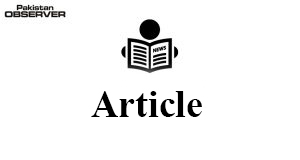Zubair Qureshi
THERE seems to be a sense of urgency amidst the government ranks as it sets sights on approving multiple bills to fulfil Financial Aid Task Force (FATF) demand before February. Pakistan is hoping to meet this deadline and complete the remaining conditions set by the watchdog. In recent meeting Pakistan retained her position in Grey List, if the country become blacklisted it will potentially be unable to receive financial assistance from the International Monetary Fund, the World Bank, and several other international organizations. This is troubling because only in the previous fiscal year, the government took over USD 13 billion in foreign loans – the second-highest amount in the country’s history — to boost shrinking foreign exchange reserves and repay external debts. But, there also seems to be a sense of realization that the country cannot go on functioning in this manner. The government has made some progress toward important fiscal and economic reforms to try to capitalize on non-debt creating inflows like exports, remittances and foreign direct investment. Ministry of Commerce has implemented some drastic policy changes that it believes will favour economic development, eventually creating jobs, diversifying industries, expanding and retaining businesses, fortifying the economy and increasing tax revenues.
For starters, the Adviser to Prime Minister on Commerce, Industries and Investment Abdul Razak Dawood has desired to increase trade and economic cooperation with African countries over the next five years. Under the Ministry’s ‘Look Africa Policy’ initiative, six new trade wings are being opened at Pakistan’s embassies in Africa: Algeria, Egypt, Ethiopia, Senegal, Sudan and Tanzania. If successful, this initiative will allow the country a sizeable chunk of the approximately USD 1 trillion annual African global trade. “We need to exchange more manufactured and processed goods, ensure more transfer of knowledge and create more value. Both sides need to accelerate export diversification and product sophistication and make our trade more inclusive. This will enable us to shift from over-dependence on commodities to higher value-added products and services,” Abdul Razak Dawood said earlier in January of this year at the Pak-Africa Trade Development Conference in Kenya. To further promote trade and help the economy grow, the Ministry recently unveiled a new shipping policy offering incentives for the establishment of local shipping lines. The target is to open the shipping business for the private sector with the state’s protection. Incentives include the abolishment of customs duty, sales tax and income tax on all income from the registered ships. They would also be allowed the first berthing right.
Under the policy, the State Bank of Pakistan has allowed the long-term finance facility at three percent for ships and vessels, which was earlier available to exporters only. Apart from generating much-needed employment opportunities, the policy looks to expand and earn foreign exchange for Pakistan. This is important given the local shipping industry lags behind regional players like Iran, Bangladesh and Iran – all of whom have a lot more national ships in comparison to Pakistan’s 11. In another recent development, the State Bank of Pakistan will credit the Duty Drawbacks directly into the accounts of the exporters from October, 2020, as per Abdul Razak Dawood. This mechanism will ensure the speedy release of tax refunds to the exporters. Duty drawback is an export incentive that many countries, including Pakistan, offer to allow both exporters and importers recover certain duties, fees, or taxes paid on imported merchandise. Even as the government introduces business and trade favourable policies, Pakistan’s economic crisis cannot be resolved overnight. But it is at least encouraging to know that the decision-makers realize that support from the IMF and other lending institutions and countries only provide some breathing room in the short term to the economy.
These new initiatives create a more investment-friendly environment, especially in areas like shipping and fishing, which were traditionally ignored. While focusing exports of manufactured goods towards an emerging region in Africa allows the country to improve its bi-lateral trade ties and its dismal export bill. The Ministry of Commerce believes that these initiatives will improve the country’s woeful economic realities by creating new jobs, improving on the existing FDIs and broadening the tax net — slowly make Pakistan a significant player in the region. “We cannot ignore that the world is changing at a rapid pace and there is a need to ensure Pakistan is a part of the growing economy in the near future. Our vision is to contribute to sustainable, progressive and inclusive economic development for the benefit of all of us,” said Abdul Razak Dawood. As per experts, although these are excellent measures taken to address the growing fiscal and current account deficit, there needs to be greater cooperation amongst state institutions and the private sector. Drafting a policy is one thing, but implementing it is a complex matter altogether. When designed well and implemented in a balanced regulatory environment with mutual support from all existing state and private players, these policies can ensure that the recent turn around in export figures and current account balance as of July 2020 are sustainable in the long run.
—The writer is senior journalist, based in Islamabad.










